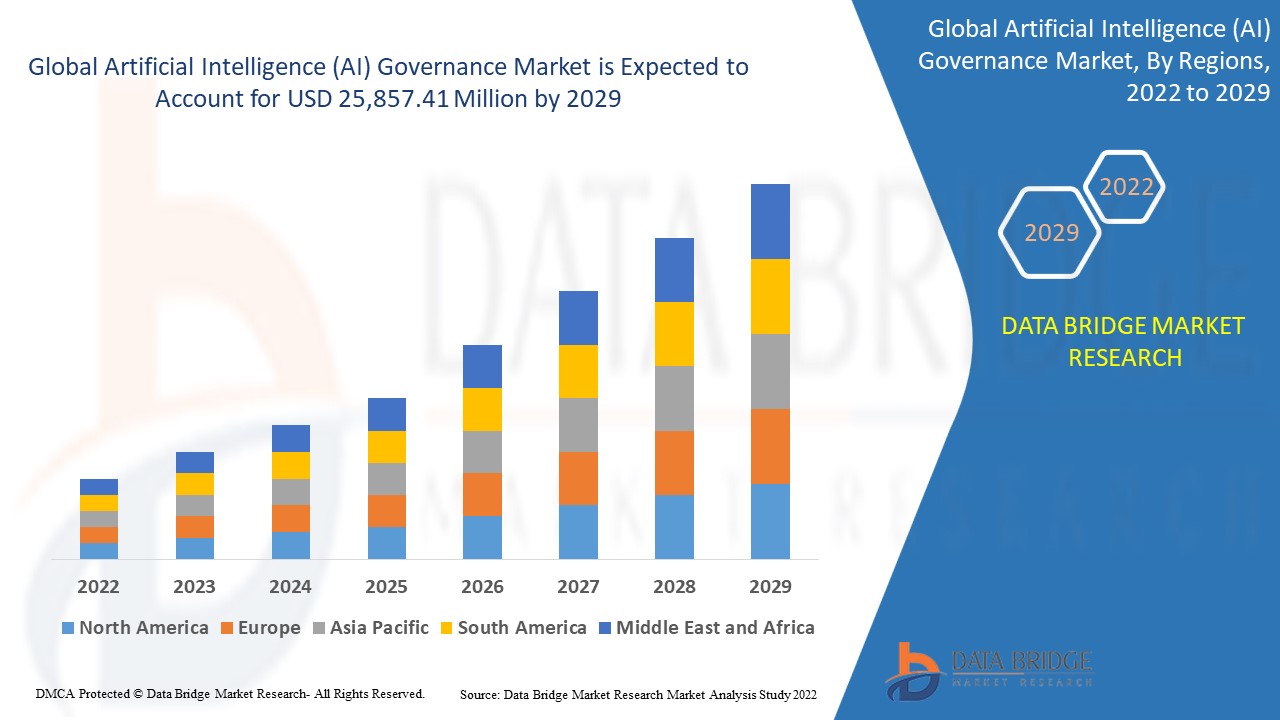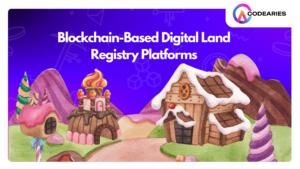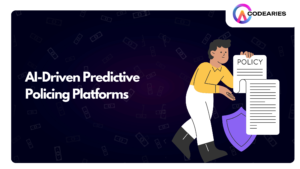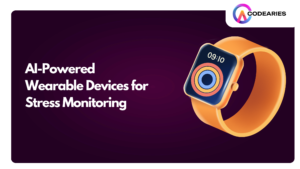Decentralized Autonomous Organizations (DAOs) have revolutionized how communities and companies can govern themselves without relying on centralized authority. These blockchain-based organizations enable transparent, decentralized decision-making, but as DAOs grow, they encounter their governance challenges. The more complex and expansive a DAO becomes, the harder it is to manage governance and streamline decision-making efficiently.
Artificial intelligence (AI) is a game-changing technology that can address many issues that DAOs face. AI-powered governance models present an opportunity to enhance how DAOs operate by optimizing decision-making processes, improving transparency, and ensuring compliance—all while preserving decentralization. In this article, we’ll explore how AI is shaping the future of governance for DAOs, as well as the advantages and challenges that come with it.
The Evolution of DAOs: From Governance to Collaborative
Innovation
Decentralized Autonomous Organizations (DAOs) have become a critical component of the blockchain ecosystem, offering new opportunities for decentralized decision-making and collaborative ownership. Their progression reflects a shift from initial governance-focused models to diverse applications across sectors like art, finance, and social initiatives.
Early DAO Governance Models (DAO 1.0)
While the concept of decentralized organizations dates back to the 1990s, blockchain technology enabled DAOs to take shape. Early DAOs, such as the well-known The DAO in 2016, primarily focused on governance and decentralized decision-making. The DAO aimed to create a decentralized venture capital fund where token holders had a say in investment decisions. Despite its eventual failure due to security vulnerabilities, it highlighted the potential of DAOs in democratizing governance processes.
The Rise of Smart Contracts (DAO 2.0)
The introduction of smart contracts revolutionized DAOs by automating rules and decision-making processes. With code that self-executes, smart contracts increase the reliability and efficiency of DAOs. This phase saw projects like MakerDAO and Compound lead the way in decentralized finance (DeFi), enabling decentralized governance in financial markets. These DAOs illustrated how blockchain could disrupt traditional financial systems by offering decentralized alternatives to borrowing, lending, and asset management.
Expanding to Collaborative Creativity (DAO 3.0)
In recent years, DAOs have broadened their scope beyond governance and finance, entering the realm of creativity and innovation. Collaborative DAOs like FlamingoDAO and The LAO have emerged as platforms that unite communities to fund artists, create digital assets, and foster innovation. These organizations function as decentralized incubators for creative projects, especially in the non-fungible token (NFT) space, where digital art and collectibles thrive. This shift marks a significant expansion of DAO use cases, showing their potential to transform industries outside of finance.
Key Trends in DAO Evolution
- Broader Use Cases: DAOs are increasingly being applied across various sectors, including decentralized science (DeSci), gaming, social impact projects, and environmental initiatives.
- Growing Complexity: As DAOs evolve, challenges related to governance models, scalability, and security are becoming more prominent.
- Integration with Traditional Systems: Some DAOs are forming partnerships with traditional companies and institutions to combine decentralized governance with existing resources and expertise.
- Regulatory Shifts: As DAOs grow, so does the focus on how they will be regulated. Governments and regulators are developing frameworks to balance the benefits of DAOs with consumer protection and legal accountability.
Enhancing DAO Governance with AI
Decentralized Autonomous Organizations (DAOs) are reshaping governance by enabling decentralized decision-making and community-led initiatives. However, managing large and diverse communities within DAOs presents unique challenges. AI offers promising solutions to address these complexities and enhance DAO governance’s efficiency, fairness, and transparency.
How AI Can Transform DAO Governance
Enhancing Decision-Making
-
- Comprehensive Data Analysis: AI can use extensive data from blockchain transactions and external sources to deliver actionable insights. This includes gauging community sentiment, tracking market trends, and identifying emerging risks.
- Predictive Analytics: By analyzing historical data and recognizing patterns, AI can forecast the potential impacts of various governance proposals, aiding members in making well-informed choices.
- Smart Recommendations: AI can offer tailored suggestions for addressing governance issues, drawing from past experiences and member preferences to propose viable solutions.
Streamlining Dispute Resolution
-
- Automated Smart Contracts: AI can oversee and enforce smart contract terms, facilitating fair and transparent resolution of disputes without manual intervention.
- AI Mediators: AI-driven mediation tools can assist in resolving conflicts by guiding discussions and proposing balanced solutions based on data and predefined criteria.
- Arbitration Systems: AI-powered arbitration can deliver unbiased decisions based on comprehensive rule sets and available evidence for more intricate disputes.
Optimizing Community Management
-
- Personalized Engagement: AI can enhance member interaction by customizing communications based on individual interests and engagement history.
- Efficient Onboarding: AI-driven bots can streamline the onboarding process for new members, offering tailored guidance and essential information to integrate them into the DAO effectively.
- Educational Content: AI can generate and distribute educational resources to help members understand governance processes and their organizational roles.
Advanced Risk Assessment
-
- Fraud Detection: AI can detect and mitigate fraudulent activities such as token manipulation or unauthorized access, safeguarding the integrity of the DAO.
- Security Evaluation: AI tools can evaluate the DAO’s security measures, identifying potential vulnerabilities and suggesting improvements.
- Risk Management Strategies: AI can assist in devising comprehensive risk management plans, enhancing the DAO’s ability to anticipate and address potential issues.
What is AI-powered DAO Governance?
AI-powered DAO governance involves using machine learning algorithms and other AI technologies to manage a DAO’s decision-making, voting, and operational processes. Unlike traditional governance models, which rely on human intervention at each step, AI systems can automate these processes, ensuring they are executed quickly, efficiently, and without bias. Integrating AI into DAOs can lead to faster decision-making, greater accuracy, and more transparent processes.
AI-Enhanced Data-Driven Decision-Making in DAOs
Decentralized Autonomous Organizations (DAOs) leverage collective decision-making from their members. Yet, the extensive and intricate nature of data within DAOs can complicate the extraction of actionable insights. AI can significantly improve this area by transforming how DAOs utilize data for decision-making.
Transformative AI Applications in DAO Decision-Making
Comprehensive Data Aggregation and Analysis
- On-Chain Insights: AI can analyze on-chain data, such as transaction records and token holdings, to uncover key trends and patterns.
- Off-Chain Integration: By including off-chain data like market sentiment and social media trends, AI offers a more comprehensive view of the DAO’s context.
- Advanced Visualization: AI can convert complex data into interactive visualizations, helping members easily understand and act on important information.
Predictive Analytics for Strategic Planning
-
- Scenario Forecasting: AI can model various scenarios and predict their potential impacts, helping DAOs evaluate the possible outcomes of different strategies.
- Risk Management: AI can detect and analyze risks, including security vulnerabilities, market fluctuations, and shifts in regulatory landscapes.
- Opportunity Detection: AI algorithms can identify emerging opportunities, uncover new markets, or suggest potential partnerships.
Sentiment and Reputation Analysis
-
- Community Feedback: AI can assess community sentiment through social media and forums, providing insights into member opinions and highlighting areas of concern.
- Reputation Tracking: AI tools can monitor and manage the DAO’s public image, address negative feedback, and maintain a positive reputation.
Tailored Recommendations
-
- Governance Proposals: AI can suggest governance proposals aligned with member preferences and historical data patterns.
- Resource Distribution: AI can advise on the optimal allocation of resources based on current community needs and priorities.
Smart Contract Enhancement
-
- Code Evaluation: AI can scrutinize smart contract code for vulnerabilities and recommend performance improvements.
- Parameter Adjustment: AI can assist in fine-tuning smart contract parameters to meet specific objectives effectively.
Real-World Applications of AI-Powered Governance in DAOs
AI-driven governance models in DAOs are still emerging, but several real-world applications demonstrate their potential to transform decentralized decision-making. Here are some notable examples and future possibilities:
Decision-Making Assistance
- Aragon: Aragon is a DAO platform that utilizes AI to analyze on-chain data and offer recommendations for governance proposals. This capability helps members make well-informed decisions by providing insights into the potential impacts of various proposals.
- DAOstack: DAOstack incorporates AI to forecast the outcomes of governance proposals. By evaluating historical data and community sentiment, DAOstack aids in predicting how different proposals might influence the DAO, enabling more strategic decision-making.
Dispute Resolution
- Kleros: Kleros employs AI to match disputes with the most qualified jurors from its decentralized jury pool. This system ensures that disputes are resolved efficiently and fairly by leveraging AI to streamline the arbitration process.
- Radicle: Radicle, an open-source collaboration platform, uses AI to detect and address potential disputes among contributors. By monitoring interactions and contributions, AI helps prevent conflicts and maintain smooth project operations.
Community Management
- Decentraland: In Decentraland, a virtual world DAO, AI-powered chatbots assist new members by providing support and answering frequently asked questions. This enhances member engagement and streamlines the onboarding process.
- MakerDAO: MakerDAO utilizes AI to track community sentiment and detect potential risks. This proactive approach helps the platform address concerns before they escalate, maintaining stability within the DAO.
Future Potential Use Cases
As AI technology advances, the potential applications for AI-powered governance in DAOs are vast:
- Predictive Governance: AI could forecast future trends and potential issues by analyzing historical data and current events, helping DAOs tackle challenges early.
- Enhanced Member Interaction: AI could personalize interactions by understanding individual preferences and behavior, leading to more effective engagement strategies.
- Adaptive Governance Models: AI may develop adaptive governance models that adjust rules and processes in real-time based on community feedback.
Conclusion
AI is poised to revolutionize governance within Decentralized Autonomous Organizations (DAOs), addressing key challenges like decision-making efficiency, risk management, and transparency. By leveraging AI for data analysis, predictive modeling, and automated processes, DAOs can enhance their operational effectiveness and ensure fairer, more informed decisions. Real-world applications, such as those seen in platforms like Aragon and Kleros, illustrate AI’s transformative potential. However, it is crucial to address concerns related to data privacy, bias, and the need for human oversight. As AI technology evolves, it promises to further advance DAO governance, making it more adaptive and equitable.
FAQS
What is the governance token in a DAO?
A governance token in a DAO (Decentralized Autonomous Organization) is a type of cryptocurrency that grants holders voting rights and influence over the organization’s decisions and policies. Token holders can propose, discuss, and vote on changes, such as protocol upgrades or fund allocations, based on the number of tokens they possess.
What is governance in DeFi?
Governance in DeFi (Decentralized Finance) refers to the process through which decisions and rules about the DeFi protocol or platform are made. It typically involves token holders voting on proposals related to protocol changes, risk management, and other critical aspects, ensuring that the platform operates according to the community’s collective interests.
What is the governance structure of a DAO?
The governance structure of a DAO is decentralized and typically involves a community of token holders who participate in decision-making. Members can propose changes, vote on proposals, and implement decisions through smart contracts, which are automated and enforce the agreed-upon rules and outcomes without centralized control.
Does a DAO use AI?
DAOs can use AI to enhance governance by automating processes such as data analysis, decision-making support, and risk assessment. AI tools can provide insights, predict outcomes, and manage disputes, but the core governance functions remain decentralized and driven by token holders.







